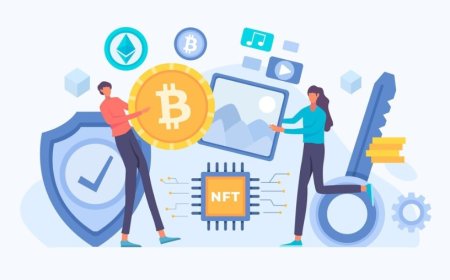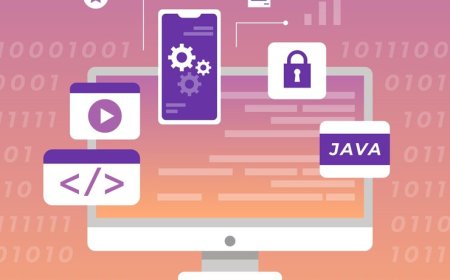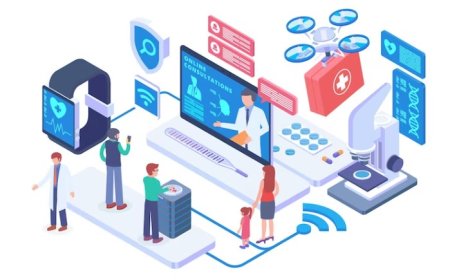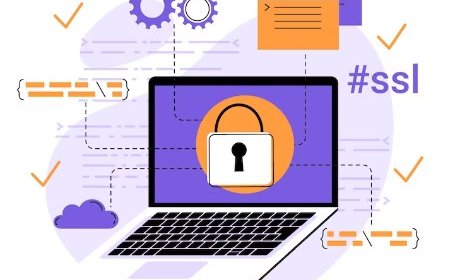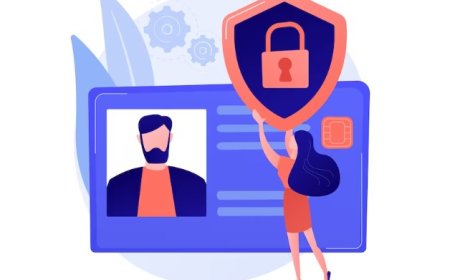Cyber security is all about protecting our digital world from threats. It's like a shield that keeps our information safe from cyber criminals who want to steal or damage it. In simple terms, cyber security is the practice of defending computers, networks, and data from unauthorized access or attacks. It involves a range of techniques and technologies designed to safeguard our digital assets, including computers, smartphones, networks, and even the Internet itself.
Cyber security is essential in this unsecured environment. Our personal and sensitive information is at risk if it is not properly protected when kept online. Cyberattacks can lead to serious consequences like financial loss and identity theft. That's why cybersecurity is crucial for everyone, from individuals to businesses and governments, to keep our digital assets safe.
Let’s explore the different roles available in cyber security, the skills and qualifications needed to succeed, and the pathways to get started in this exciting field. The main purpose of this blog is to provide helpful tips and information so that you will be able to make the best choices in your career as a cybersecurity expert
Key Concepts and Principles
These key concepts form the foundation of cybersecurity principles, guiding the development and implementation of security measures to protect digital assets and ensure a secure computing environment.
Confidentiality: Keeping information private and safe from unauthorized access and also preventing prying eyes from accessing sensitive data. This can be implemented through measures like encryption and access controls.
Integrity: ensuring that data remains accurate and unaltered and also protecting against unauthorized changes or modifications to data. Verification can be done through methods such as checksums and digital signatures.
Availability: Ensuring that digital services and resources are accessible when needed and preventing disruptions or downtime that could impact operations. It should have well-maintained service continuity through redundancy and backup systems.
Common Cybersecurity Threats And Challenges:
In the cyber world, there are plenty of threats lurking around, and keeping up with these threats and staying one step ahead is a constant challenge for cybersecurity experts. These are some of the common threats and challenges we face:
-
Malware: Harmful software that damages devices and steals data.
-
Phishing: Deceptive tactics used to trick individuals into revealing sensitive information.
-
Denial-of-Service (DoS) Attacks: Flood websites with traffic to make them inaccessible.
-
Insider Threats: Risks from individuals within an organization misusing access privileges.
-
Social Engineering: Manipulative techniques to exploit human psychology and gain unauthorized access.
-
Advanced Persistent Threats (APTs): Sophisticated, long-term cyberattacks targeting specific organizations.
-
Vulnerabilities and Exploits: Weaknesses in software or systems that attackers exploit for unauthorized access.
-
Compliance and Regulatory Requirements: Challenges in Adhering to Industry Regulations and Data Protection Laws.
-
Ransomware: Malicious software that encrypts data and demands payment for its release.
-
Data breaches: Unauthorized access to sensitive information, often resulting in its exposure or theft.
-
Identity Theft: Unauthorized use of personal information to impersonate individuals for fraudulent activities.
-
Internet of Things (IoT) Vulnerabilities: Security risks associated with interconnected devices and networks.
-
Supply Chain Attacks: Targeting vulnerabilities in third-party vendors or partners to compromise larger organizations.
-
Zero-Day Exploit: Attacks exploit previously unknown vulnerabilities, leaving no time for patching.
-
Human error: mistakes made by individuals that compromise cybersecurity measures, such as clicking on malicious links or falling for scams.
Career Paths In Cybersecurity
In cybersecurity, there are various career paths to choose from. These roles offer different ways to help keep the digital world safe.
In the world of technology, ensuring the safety of digital information is crucial. Various experts specialize in different areas of cybersecurity to protect against threats and keep data secure. Let's explore some of these roles in simple terms:
1. Security Analysts: Think of security analysts as the lookouts of the digital world. They are always watching, monitoring networks and systems to spot any signs of security threats. Their job is to keep an eye out for anything unusual that might suggest a hacker is trying to break in or that some malware is trying to spread. By catching these threats early, they help prevent potential attacks or breaches.
2. Penetration Testers: Penetration testers are like professional digital safecrackers, but they use their skills for good. Their job is to deliberately try to break into computer systems, websites, and networks to find weaknesses before the bad guys do. It’s a proactive approach to discover vulnerabilities that could be exploited by hackers. By finding these weak spots, they can be fixed to make the system stronger and more secure.
3. Incident Responders: When a cybersecurity incident happens, incident responders are the emergency services of the digital world. They spring into action to deal with the problem, whether it’s a virus outbreak, a breach in security, or any other kind of security issue. Their job is to quickly control the situation, minimize damage, and find out how it happened so they can prevent it from occurring again.
4. Security Consultants: Security consultants are like advisors who specialize in keeping information safe online. They assess the security needs of organizations and recommend the best ways to protect their digital assets. This could involve suggesting security policies, practices, and software that can help an organization defend itself against cyber threats. They provide expert advice to ensure that an organization's data remains secure.
5. Cryptographers: Cryptographers are the secret-keepers of the digital world. They create complex codes that protect information. These codes are used to encrypt data, making sure that only authorized people can access it. Whether it’s your messages, your bank details, or sensitive government documents, cryptographers work behind the scenes to keep this information safe from prying eyes.
6. Security Engineers: Security engineers are the architects and builders of digital defenses. They design, build, and maintain systems that protect against cyber threats. This includes firewalls, intrusion detection systems, and encryption technologies. Their role is to create the secure foundation that everything else relies on, ensuring that an organization’s data and systems are safeguarded from attacks.
Together, these professionals play critical roles in protecting the digital world. By specializing in different aspects of cybersecurity, they ensure that our data, from personal information to national security details, remains secure against an ever-evolving array of cyber threats.
Skills And Qualifications
Technical skills
-
Knowledge of operating systems like Windows, Linux, and macOS.
-
Understanding of networking concepts, such as TCP/IP, routing, and switching.
-
Proficiency in programming languages like Python, Java, or C++ for scripting and automation.
-
Familiarity with cybersecurity tools and technologies, including firewalls, intrusion detection systems, and antivirus software.
-
Ability to conduct vulnerability assessments and penetration testing to identify and remediate security weaknesses.
Soft skills
-
Strong communication skills for effectively conveying complex technical concepts to non-technical stakeholders.
-
Analytical and problem-solving abilities to identify and address security issues.
-
Attention to detail is needed to detect and investigate security incidents thoroughly.
-
Adaptability and creativity are needed to stay ahead of evolving cyber threats and develop innovative solutions.
-
Collaboration and teamwork skills to work effectively with colleagues across departments and disciplines.
Educational and certification paths
-
Bachelor's degree in cybersecurity, computer science, information technology, or related fields.
-
Master's degree or advanced certifications for specialized roles or leadership positions.
-
Certifications such as CompTIA Security+, Certified Ethical Hacker (CEH), and Certified Information Systems Security Professional (CISSP) are highly regarded and demonstrate proficiency in cybersecurity concepts and practices.
Importance of continuous learning and professional development
-
Stay updated on the latest cybersecurity trends, techniques, and best practices through training, workshops, and conferences.
-
Pursue advanced certifications and specialized training to deepen expertise in specific areas of cybersecurity.
-
Engage in hands-on practice and real-world scenarios to hone technical skills and problem-solving abilities.
-
Join professional associations and networking groups to connect with peers and share knowledge and experiences.
Career Insights And Advice
Listening to personal stories from cybersecurity professionals gives a real glimpse into their world. They talk about how they got started, the tough parts they faced, and the wins they celebrated. These stories inspire and guide aspiring cybersecurity folks, showing them what it takes to succeed in this exciting field.
Going through cybersecurity jobs comes with both challenges and rewards. So some of them are, like:
Challenges
-
Dealing with constantly evolving threats: Cybersecurity professionals must stay updated on the latest attack techniques and technologies.
-
Continuous learning: The field of cybersecurity is always changing, requiring professionals to continually learn new skills and adapt to new threats.
-
Pressure to protect sensitive information: There's immense responsibility in safeguarding digital assets and preventing data breaches, which can be stressful.
Rewards
-
Making a meaningful impact: Cybersecurity professionals play a crucial role in protecting individuals, businesses, and organizations from cyber threats, making a positive difference in the world.
-
Satisfaction with solving complex problems: Successfully mitigating cyber threats and vulnerabilities provides a sense of accomplishment and fulfillment.
-
Potential for career growth and advancement: With the increasing demand for cybersecurity professionals, there are ample opportunities for career progression and advancement in the field.
Tips for Aspiring Cybersecurity Professionals
-
Build a strong foundation of technical skills and knowledge.
-
Obtain relevant certifications to demonstrate proficiency.
-
Pursue formal education in cybersecurity or related fields.
-
Gain hands-on experience through internships or entry-level positions.
-
Stay informed about the latest industry trends and developments.
Network with professionals in the cybersecurity field
-
Networking is the key to cybersecurity. It helps with professional development, mentorship, and job referrals. Aspiring professionals should join cybersecurity communities, attend industry events, and connect with others on platforms like LinkedIn.
-
Job searching requires tailoring resumes and cover letters to highlight skills. Practice common interview questions, both technical and behavioral, to ace interviews.
-
For career advancement, pursue advanced certifications, seek mentorship, and always be on the lookout for growth opportunities. These steps can help advance your cybersecurity career.
Resources
Professional organizations and communities
Joining professional organizations and communities can provide networking opportunities, professional development resources, and support in the cybersecurity field. Consider exploring:
-
International Information System Security Certification Consortium (ISC)
-
Information Systems Security Association (ISSA)
-
Cybersecurity and Infrastructure Security Agency (CISA)
-
Women in CyberSecurity (WiCyS)
-
National Initiative for Cybersecurity Careers and Studies (NICCS)
Training programs, boot camps, and online courses
To enhance your skills and knowledge in cybersecurity, consider enrolling in training programs, boot camps, or online courses offered by reputable institutions and organizations. Some options to explore include:
-
SANS Institute: offers various cybersecurity training courses and certifications.
-
CompTIA: Provides certifications like Security+ and CySA+ for entry-level and mid-career professionals.
-
IIFIS: It is an international cyber security body provides certifications in the field of network security, application security, cyber security, information cyber security
-
Coursera, Udemy, and Pluralsight: offer a wide range of online courses on cybersecurity topics, suitable for beginners to advanced learners.
-
Cybersecurity boot camps: Institutions like Flatiron School, SecureSet, and Fullstack Academy offer immersive cybersecurity boot camps designed to prepare individuals for careers in the field.
It's a field full of opportunities where you can make a real difference. Keep learning, stay curious, and don't be afraid to take on challenges. Your skills are needed to protect our digital world, and your contribution matters. By pursuing a career in cybersecurity, you can play a crucial role in protecting our digital world and making a positive impact.
Looking ahead, the future of cybersecurity careers is bright. With technology advancing rapidly and cyber threats becoming more sophisticated, the demand for cybersecurity professionals will continue to rise. By staying adaptable, curious, and committed to lifelong learning, you can thrive in this dynamic and ever-evolving field. Remember, the possibilities in cybersecurity are endless, and your journey is just beginning. So, embrace the opportunities ahead and make your mark in the world of cybersecurity.
























